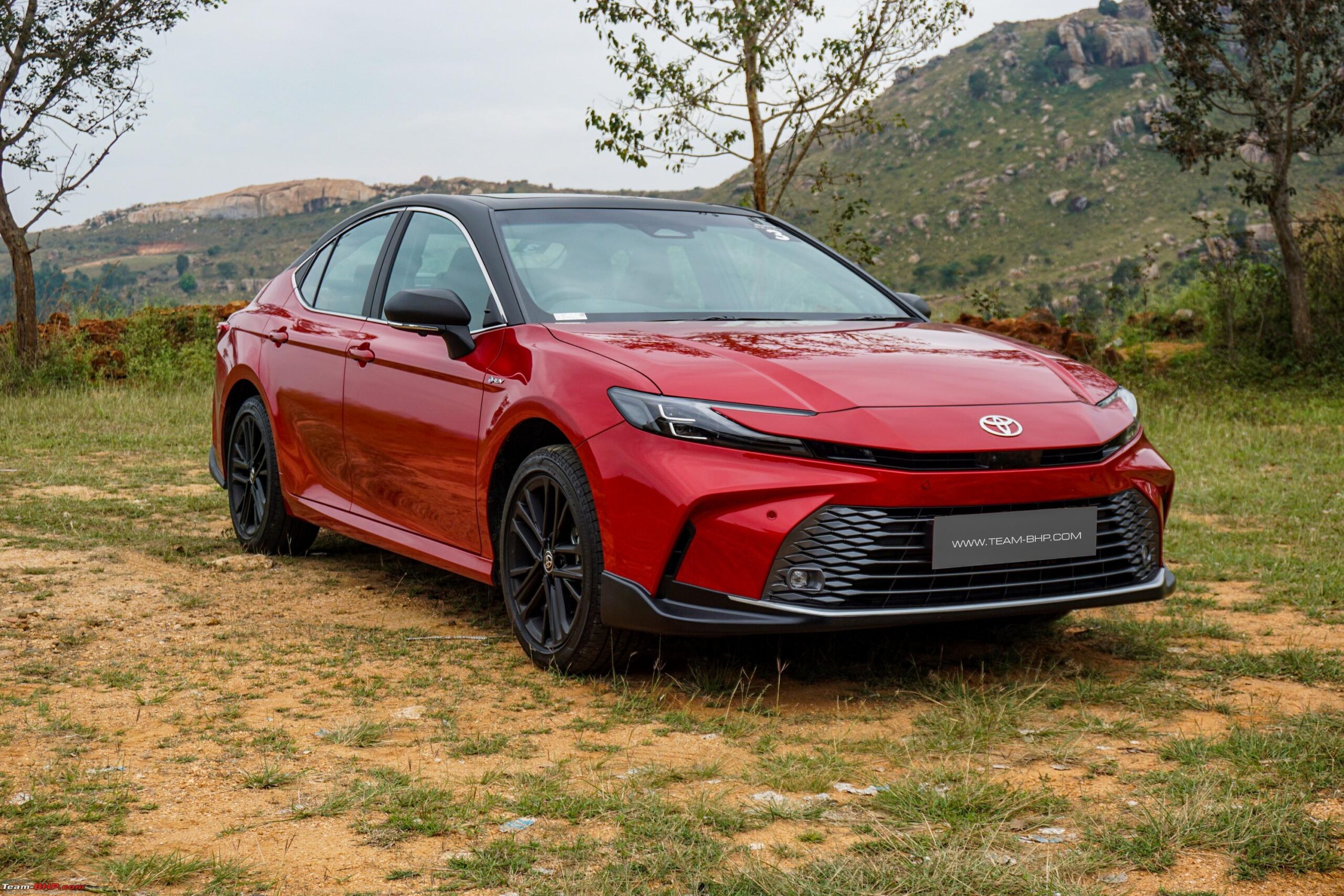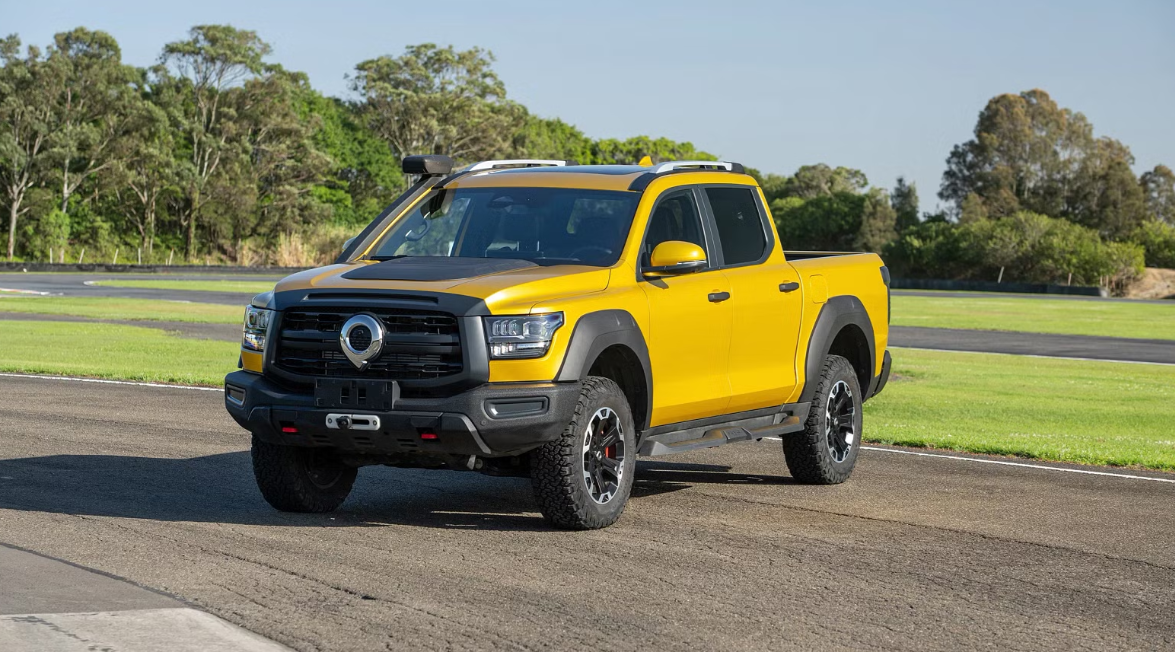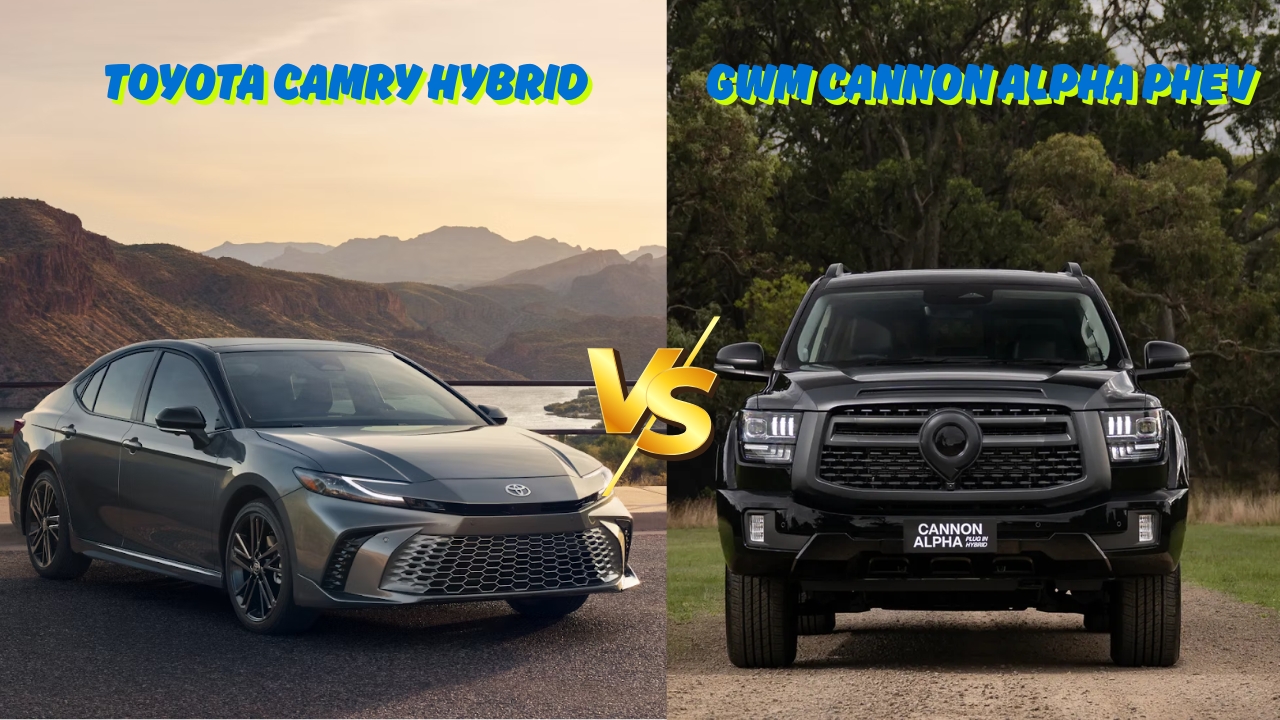Camry Hybrid : The Australian automotive landscape has transformed dramatically, with hybrid and plug-in hybrid technologies becoming increasingly mainstream. Two vehicles capturing significant attention are Toyota’s 2025 Camry Hybrid, starting just shy of $40,000 before on-roads with its new fifth-generation hybrid system, and GWM’s Cannon Alpha PHEV, priced from $61,490 drive-away. While these vehicles serve different market segments, understanding their strengths helps Australian consumers make informed decisions about their next purchase.
Understanding the Fundamental Differences
Toyota Camry Hybrid: The Refined Sedan Choice

The 2025 Camry represents Toyota’s commitment to hybrid-only powertrains, featuring a fifth-generation 2.5-litre Hybrid Electric powertrain that delivers 170kW of combined power and achieves 4.0L per 100km fuel consumption. This mid-size sedan has undergone significant updates, including an extended front overhang by 35mm while maintaining the same 2825mm wheelbase, plus Toyota’s Hammer Head design language for a sleeker appearance.
The Camry’s hybrid system represents decades of refinement. Toyota’s latest hybrid technology makes for a more appealing stepping stone than ever, with the new system able to accelerate faster and for longer without the petrol engine firing in the city. This translates to smoother urban driving and improved efficiency.
GWM Cannon Alpha PHEV: The Utility Powerhouse
The Cannon Alpha PHEV delivers a commanding 300kW of combined power and 750Nm of torque, with a 37.11kWh battery pack positioning it as one of the most powerful hybrid utes on the market. It offers 110km of electric driving range and 880km total range, plus class-leading braked towing capacity of 3,500kg.
This plug-in hybrid ute targets buyers needing serious capability. The Cannon Alpha features low range plus centre, rear and front differential locks, making it more than capable for off-road adventures.
Performance and Efficiency Analysis
Power Delivery Characteristics
The Toyota Camry Hybrid prioritises smooth, refined power delivery. The hybrid system has more electric punch than ever, maintaining or gently increasing speed for short, flat stretches on the highway, making the car feel smoother and more refined. This approach suits daily commuting and long-distance touring.
The GWM Cannon Alpha PHEV takes a different approach. With its 300kW/750Nm output, it can sprint from 0-100km/h in a claimed 6.9 seconds despite weighing over 2800kg. This substantial power serves utility work and heavy-duty applications.
Fuel Economy and Running Costs
The Camry Hybrid achieves 4.0L per 100km across all driving conditions, making it exceptionally economical for daily use. Toyota’s capped-price servicing scheme covers the first five years at $255 per visit, with intervals every 12 months or 15,000km.
The Cannon Alpha PHEV claims 1.7L/100km fuel economy when using its electric range effectively. However, servicing averages about $650 each for the first five visits, approximately double what you’d pay for comparable diesel alternatives.
Design and Practicality
Interior Space and Comfort

The Camry provides up to 524 litres of boot storage space and clever in-cabin storage solutions. Rear-seat passengers benefit from generous legroom and a flatter floor thanks to battery relocation, with no loss in cargo space due to the hybrid system.
The Cannon Alpha PHEV measures 5445mm long with a 3350mm wheelbase, offering massive space for five occupants. However, payload is limited to 685kg due to the 2810kg weight, compared to up to 821kg for diesel variants.
Technology and Features
The Camry features a 12.3-inch touchscreen display (8-inch in Ascent models) with wireless Apple CarPlay, Android Auto, and cloud-based satellite navigation. All models include Toyota Safety Sense technology with improved road user detection, active cruise control, blind spot monitoring, and safe exit assist.
The Cannon Alpha PHEV includes a 14.6-inch infotainment touchscreen and 12.3-inch digital instrument panel, plus a large head-up display. It provides Vehicle to Load capability with up to 3.3kW output for powering external electrical devices.
Market Positioning and Value
Target Demographics
The Camry Hybrid appeals to traditional sedan buyers, families, and fleet operators. Toyota anticipates around 70 percent will be sold to fleets, with the remainder finding homes with buyers not keen to follow the crowd to an SUV.
The Cannon Alpha PHEV targets buyers needing serious off-road capability and towing capacity, positioning itself between traditional one-tonners like the Toyota HiLux and giant US pickups.
Warranty and Support
Toyota Australia backs the Camry with a five-year, unlimited-kilometre warranty, extending to seven years on the driveline with timely dealer servicing. Toyota’s extensive dealer network ensures widespread support.
GWM provides an 8-year/unlimited kilometre battery warranty, 7-year/unlimited kilometre vehicle warranty, and 7 years of roadside assistance and capped-price servicing. However, GWM’s dealer network remains smaller than Toyota’s established presence.
The Australian Context
Infrastructure Considerations
The Camry Hybrid requires no charging infrastructure, making it suitable for any driving situation. Its hybrid system automatically manages energy recovery and deployment.
The Cannon Alpha PHEV offers 50kW DC fast charging capability, charging from 30-80% in 26 minutes. However, maximising its efficiency requires access to charging infrastructure, particularly important for rural and remote Australian applications.
Climate and Conditions
GWM tested the Cannon Alpha’s battery system to operate in temperature extremes between -40 and +50 degrees Celsius, important for Australia’s diverse climate conditions. The batteries achieve IP67 water resistance rating, surviving 30 minutes of submersion in one metre of water.
The Camry’s proven hybrid system has operated successfully in Australian conditions for years, with Toyota extending the hybrid battery warranty to up to 10 years with annual maintenance inspections.
Why the Camry Hybrid Holds the Edge
Proven Reliability and Support
Toyota’s hybrid technology represents over two decades of development and refinement. The company’s reputation for reliability, combined with extensive dealer support and proven resale values, provides confidence for Australian buyers.
Cost-Effective Operation
The Camry Hybrid offers excellent fuel economy without requiring charging infrastructure investment. Lower servicing costs and proven durability make it cost-effective for high-mileage users.
Appropriate Sizing
For most Australian families and businesses, the Camry’s size perfectly balances interior space, fuel economy, and manoeuvrability. It suits urban environments while providing excellent highway comfort.
Market Maturity
Australia’s first proper petrol-electric ute market remains emerging, while the sedan hybrid market benefits from established infrastructure and buyer confidence.
Vehicle Specifications Comparison
| Specification | Toyota Camry Hybrid | GWM Cannon Alpha PHEV |
|---|---|---|
| Price Range | $39,990 – $53,990 | $61,490 – $71,090 |
| Power Output | 170kW | 300kW |
| Fuel Economy | 4.0L/100km | 1.7L/100km* |
| Electric Range | N/A | 110km |
| Towing Capacity | Not specified | 3,500kg |
| Payload | N/A | 685kg |
| Warranty | 5 years unlimited | 7 years unlimited |
| Seating | 5 | 5 |
| Vehicle Type | Sedan | Dual-cab ute |
*With electric range utilisation
Frequently Asked Questions
Q: Which vehicle offers better value for money? A: The Camry Hybrid provides exceptional value for sedan buyers, with proven reliability and lower operating costs. The Cannon Alpha PHEV offers good value for those needing ute capabilities and willing to pay premium pricing.
Q: Is charging infrastructure a concern for the Cannon Alpha PHEV? A: Yes, maximising the PHEV’s efficiency requires regular charging access. The Camry Hybrid operates independently of charging infrastructure.
Q: Which vehicle suits Australian road conditions better? A: Both are designed for Australian conditions, but the Camry’s lower weight and refined suspension typically provide better urban comfort, while the Cannon Alpha excels in off-road scenarios.

